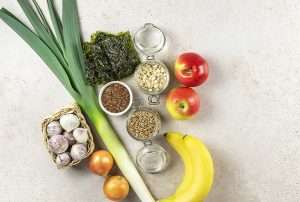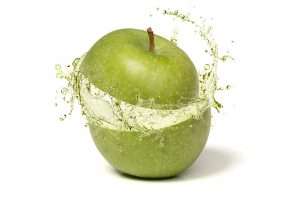8 most common types of probiotics to keep you healthy
Probiotics 101 & Types Of Probiotics
Different types of probiotics alter the architecture of gut bacteria or even the metabolic functions of pre-existing bacteria to produce their desired effects. In your gut, the healthy bacteria outnumber the harmful bacteria. This stops the harmful bacteria from growing and resulting in inflammation or infection. For instance, an overabundance of yeast inside the body might result in fungal infection, while a healthy gut biome will maintain yeast levels in check. Probiotics types may aid digestion and make it easier for your body to absorb food’s nutrients. Inhibitory or even lethal proteins or enzymes can be produced by beneficial bacteria. Certain probiotic types can also improve your immune system.
Probiotics can be defined as the live, helpful bacteria and/or yeasts that are already present in your body. Typically, bacteria are looked upon negatively as being something that makes you sick. However, your body usually contains two types of bacteria: good and bad bacteria. Also, you can benefit from this healthy bacteria in numerous ways, including battling harmful bacteria when there are too many of them and making you feel better. These bacteria are consumed better through probiotic supplements as you cannot always keep track of your diet every day.
Probiotics are a component of your microbiome, a wider context including microbes and your body. Imagine your microbiome as a rich diversity of microorganisms that collaborate to maintain your body’s health, like a forest. The bacteria that make up this community are known as microbes. Your body contains trillions of microbes. These microbes include:- Viruses, bacteria, fungi (yeast), and protozoa. Good bacteria included in probiotics contribute to maintaining your body’s health and functionality You will get a proper understanding of different probiotic types throughout this blog.
8 Common Types Of Probiotics
Probiotic species are genetically diverse subgroups of genera. Each probiotic life form has a unique impact on the body. Probiotic species names are found on food labels, along with the genus and species. Here are some probiotic types for your information and understanding:-
- B. animalis: It helps with digestion and fights food-borne bacteria. It also strengthens the immune system.
- B. lactis: This is another example of probiotics that comes from raw milk. Nestle’s probiotic infant formula, Good Start Natural Cultures.
- L. reuteri is found in the intestine and the mouth. According to one study, it reduced the oral bacteria that cause tooth decay. It is also thought to be beneficial to the digestive system.
- L. casei: This specific example of probiotics can prevent the growth of Staphylococcus aureus and Helicobacter pylori, two harmful bacteria renowned for infecting people and causing health issues.
- B. longum is a species that lives in your digestive tract. It aids in the breakdown of carbohydrates and can act as an antioxidant.
- L. acidophilus is found in the small intestine as well as the vagina. It aids digestion and may aid in the fight against vaginal bacteria. It can be found in yogurt and fermented soy products like miso.
- B. breve: This species is found in the digestive tract and the vagina. It fights infection-causing bacteria or yeast in both places. It aids nutrient absorption by fermenting sugars. It also digests plant fiber by breaking it down.
- L. rhamsonus: decreases the likelihood of yeast and bacterial vaginal infections and aids in restoring normal vaginal flora.
Sources of Probiotics
1. Kimchi
Kimchi is a fermented food that is abundant in probiotics and offers some positive benefits. It is a type of Asian fermented meal composed primarily of radishes and cabbage. Kimchi contains Lactobacillus kimchi and other lactic acid bacteria that may be helpful for the digestive system. Vitamin K, riboflavin (vitamin B2), and iron are just a few of the vitamins and minerals that are plentiful in cabbage-based kimchi.
2. Yogurt
One of the greatest and simplest ways to get probiotics is through yogurt. It is made from pasteurized milk that has been fermented by two kinds of bacteria called lactobacillus Yogurt is excellent for strengthening bones and muscles. Yogurt helps decrease and control antibiotic-induced diarrhea in kids. Unfortunately, not all yogurts include probiotics types since some are heated, which usually kills beneficial microorganisms, so be sure to look for the phrase “live active cultures” on the label.
3. Kombucha
Black or green tea is used to create the fermented beverage kombucha, which also contains a bacterial and yeast symbiotic culture (SCOBY). For the best possible outcomes, get a chilled, low-sugar Kombucha.
4. Kefir
The greatest option if you have lactose intolerance is kefir. When kefir grains are mixed with cow or goat milk, a fermented probiotic milk beverage known as kefir is created. Kefir has been proven to conquer the digestive tract, increasing the likelihood that it will provide your gut with the healing effects it needs.
5. Pickles
The traditional probiotic preparation that is extensively used in India is pickles. Generally, water and sea salt are used to ferment it. Make sure you don’t use vinegar when making it because it might not have probiotic effects. Pickles are heavy in sodium and vitamin K yet low in calories.
6. Traditional Buttermilk
This is often consumed in India and other parts of Asia such as Pakistan and Nepal. It is the liquid that remains after creating butter. Probiotics types, minerals, and vitamins are abundant in traditional buttermilk.
Although buttermilk is low in fat and calories, it is a good source of various vitamins and minerals, including calcium, phosphorus, riboflavin, vitamin B12, and riboflavin.
Benefits Of Probiotics
1. Prevention of UTIs
You could benefit from consuming probiotics if you belong to the 40–60% of women who suffer from frequent urinary tract infections, or UTIs. According to Fasig, they can help you experience them less frequently. These microorganisms may aid in reducing the uncomfortable symptoms that frequently accompany UTIs when they do arise.
2. Strengthening your immunity
Various probiotics types might just be the immune system booster you’ve been looking for if you normally get sick. According to the Cleveland Clinic, boosting and replenishing the body’s beneficial bacteria has been demonstrated to boost immunity. Additionally, regular consumption of probiotic-rich meals or probiotic supplements makes it simpler for your body to create the vitamins and enzymes needed to maintain healthy intestines
3. Fights skin problems
Probiotics types have advantages beyond internal health. Probiotics may benefit people with skin conditions like acne and eczema whether they are taken orally or administered topically, as per research from the American Academy of Dermatology. Nevertheless, additional research is required, so check with your dermatologist before making any changes to your everyday schedule.
4. Improves your digestion
The microbes inside the lower intestine tract are in charge of assisting with food digestion, and according to Fasig, taking probiotics can keep everything in order. According to Harvard Medical School, probiotics may also help minimize gastrointestinal symptoms such as gas, bloating, and constipation.
5. Low risk of contracting Covid-19
Multiple studies have shown that taking probiotic supplements may reduce your risk of developing COVID-19, however, these were observational studies, so more extensive research is required. For instance, one study discovered a link between taking supplements like multivitamins, probiotics, vitamin D, or omega-3 fatty acids and a reduced risk of testing positive for the virus
FAQs
1. Why should I choose Plix’s prebiotic supplements over others?
Plix Happy Tummy is made with all-natural ingredients that have undergone clinical research, such as Green Apple, Chicory Root, 20 bn CFUs, and 6 essential probiotic strains. This effective mixture works to prevent bloating and other digestive discomforts.
2. What will happen if you consume probiotics daily?
The added good bacteria aid in gut repopulation and eliminate any harmful bacteria that may still be present. Probiotics types are usually included in the daily diet since many people believe they may not cause any harm, could make you feel better, and most importantly, avoid diarrhea.
3. When should a probiotic be taken during the day?
Probiotics are said to be the most effective if you consume them about 30 minutes before your meal — and most effective when you consume your supplement before having some breakfast. However, the time of day is ultimately up to you.
4. How can you tell if probiotics are effectively working?
Improvement in digestion is the very first and most noticeable effect that people may experience. The probiotic bacteria operate to restore the balance of bacteria in your gut, which can fast enhance aspects like bowel regularity and frequency as well as reduce bloating or gas.
5. What might happen if I completely stop consuming Plix’s probiotic supplements?
It is advised that you continue living a healthy lifestyle and eating a balanced, nutritious diet after stopping these supplements. You will notice results fading after 6 to 9 months without taking Good Gut, which indicates that you need to start having it again.















